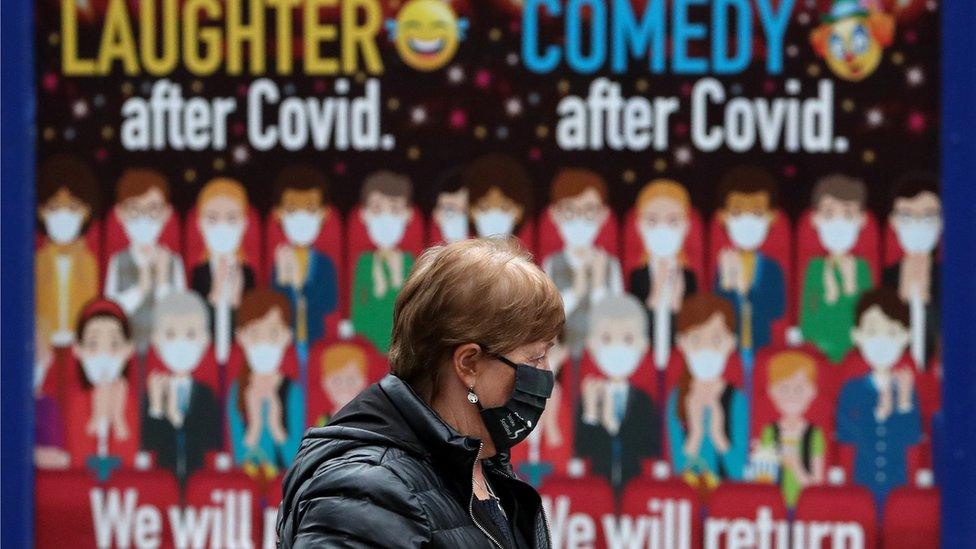Covid in Scotland: 'Ghost towns' warning over restrictions
- Published
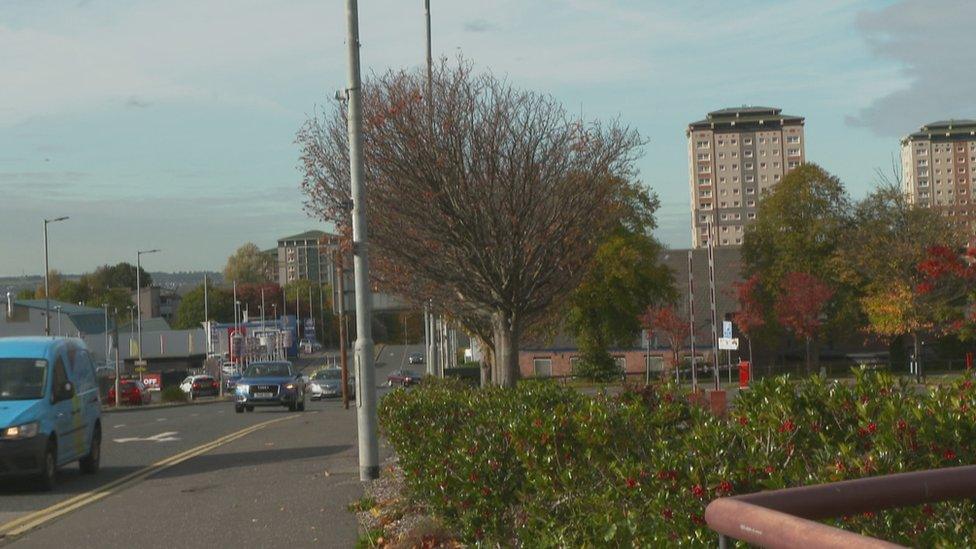
A business group has warned Lanarkshire could be left with "ghost towns" if the area is put under the highest level of Covid restrictions.
On Monday a leaked letter to council umbrella body Cosla said level four measures could not be ruled out.
Lanarkshire Business Group said a third of its members feared they would not survive being closed for a fortnight.
The Scottish government insisted no decisions have yet been made and that the situation may be "stabilising".
According to a leaked letter to Cosla, officials are considering whether to place North and South Lanarkshire in the highest tier under new five-level system of restrictions, external which will come into effect next Monday.
The framework is due to be debated by MSPs, with an announcement on the level for each council area expected later this week.
Alan Kirkwood, the vice-chair of Lanarkshire Business Group, said firms had no incentive to invest at the moment and the uncertainty had left many "pretty terrified" for the future.
He called for more financial aid for his members and added: "We need to be quite clear what it is we are going to do for our towns and cities otherwise we will end up with ghost towns."
Mr Kirkwood old BBC Scotland's The Nine: "If you then close them down for another two weeks about a third of the businesses say they are not going to be able to survive it.
"They are not going to last. It is going to have a devastating impact on the economy in both North and South Lanarkshire."
Alan Kirkwood told The Nine: "People aren't going out shopping, if you look up and down the high streets, the older part of our community are not out. They are terrified."
Both council areas currently have the highest rates of positive tests in Scotland.
The new tier system will allow different restrictions to be imposed in local areas, depending on the rate of the infection.
On Monday the national clinical director, Professor Jason Leitch, said the number of cases in Lanarkshire appeared to be decelerating but that it was still the area causing the most concern.
The situation in Dundee, where there has been a rising numbers of cases, has also led to speculation it could be moved to level three.
Like the other parts of the country, it is currently under restrictions which would place it in level two of the new system.
Prof James Chalmers, of Dundee University, said Dundee's rate of infection per 100,000 people was now higher than some areas that have enhanced restrictions such as parts of Ayrshire and the Forth Valley.
"Clearly when we see cases going up the only way to bring that back down is to introduce more restrictions," the respiratory medicine expert told The Nine: "Those numbers are going up and we need to do something to reduce those numbers urgently."
'Wipe out jobs'
Prof Chalmers said that the figures had been exacerbated by localised outbreaks in health care facilities and travel-associated infection, as opposed to community transmissions, which had been identified and contained.
He added that the key to living with the virus was reducing the R-rate to below one.
He cautioned: "If we take half measures as the cases continue to rise we will just have a peak in December/ January as opposed to November."
John Alexander, the SNP leader of Dundee City Council, told the BBC's Good Morning Scotland programme he would "absolutely welcome" the introduction of tighter restrictions if necessary.
"I would be supportive of whatever the medical and scientific experts and data suggest is necessary to get us back to a point where we've got a lower level of the virus in the city," he said.
"If we need to move into tier three, that is absolutely necessary and I will work with the Scottish government and whoever else to make sure we do as much as we can to support people during this period."
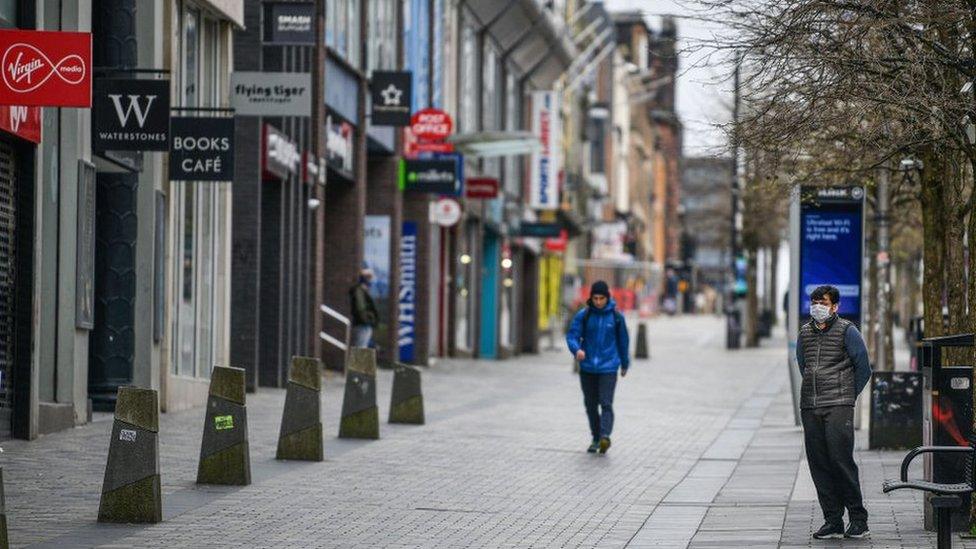
Shona Haslam, the Conservative leader of Scottish Borders Council, said more clarity was needed from the Scottish government on what placing the region into tier two would mean for businesses.
"We currently have an infection rate of 30 per 100,000 people, we have no community transmission and we have space in our hospital. Those are the indicators the Scottish government are basing decisions on," Ms Haslam told Good Morning Scotland.
"What rate per 100,000 people does it need to be in tier two, or tier one? What is the R rate they are looking for? We haven't had that clarity.
"If the public are going to follow this advice, they need to know why we're doing this. We need to treat the public like grown-ups. The Scottish government has to be more honest with the Scottish people about why we're in these tiers, what it means for business, and how do we get out of it?"


Meanwhile, hospitality trade bodies have written to the to the first minister to request additional help for the "devastated" sector.
UK Hospitality Scotland, the Scottish Licensed Trade Association, Scottish Beer and Pub Association and Scottish Hospitality Group said higher restrictions would require "higher levels of support for businesses".
In a joint statement, the trade bodies said: "No other sector has been as heavily disrupted as hospitality and the planned framework looks set to provide further restrictions which may destroy businesses and wipe out jobs.
"Clearly the objective for everyone must be to contain the spread of the virus.
"It must, however, be done in a way which gives the incredibly valuable businesses in our sector the best possible chance of survival and a more equal shouldering of the burden at this time."


- Published26 October 2020
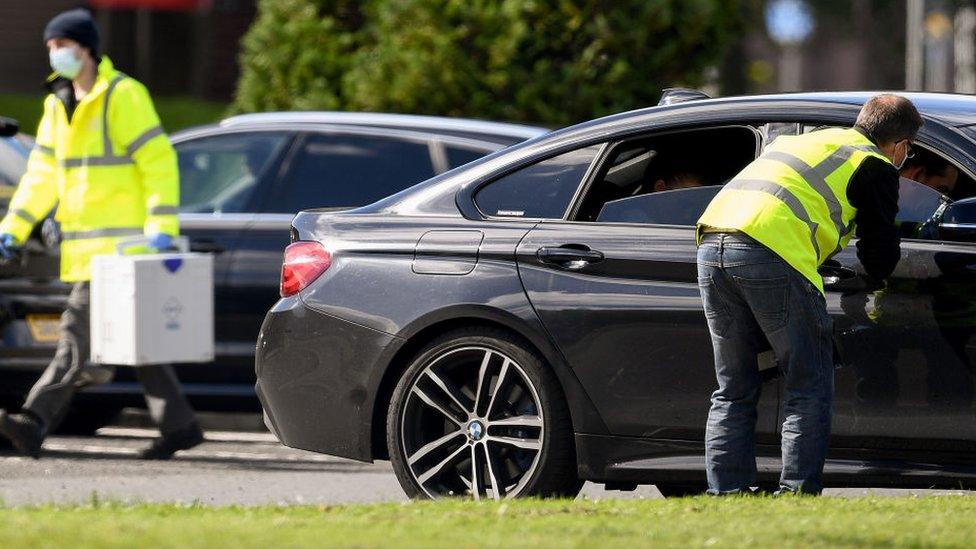
- Published22 October 2020
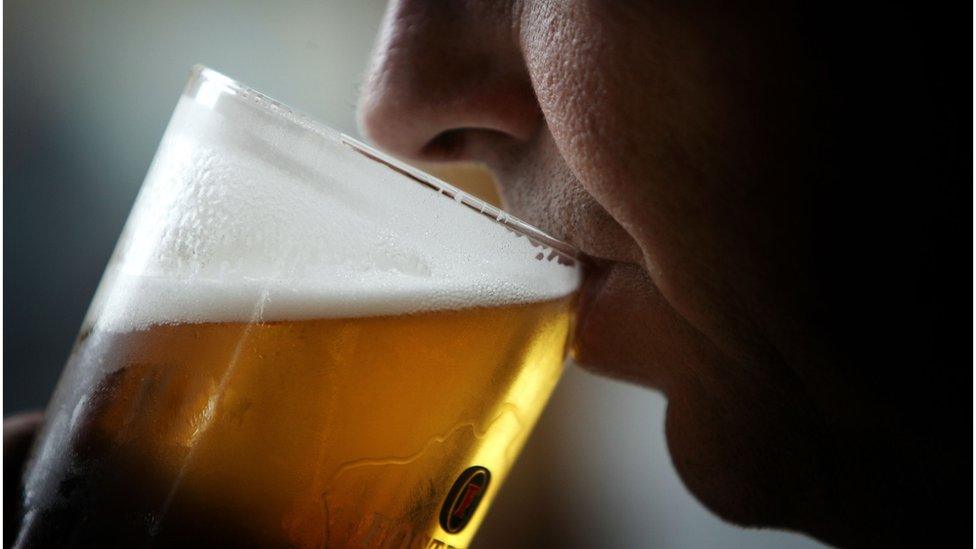
- Published8 December 2020
